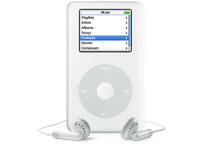I have been busy adding to my tags in
my del.icio.us account, exploring popular tags and tracking some interesting tags and blogs. Tags of special interest include social bookmarking and folksonomies.
Library Clips blog and
The Shifted Librarian blog provide commentary and a range of resources on RSS, tags and folksonomies.
This article on
folksonomies by Joshua Porter refers to "a new user-driven approach to organizing information" Such sites "include two basic capabilities: they let users add “tags” to information and they create navigational links out of those tags to help users find and organize that information later."
Del.icio.us is cited as one example of such an organizational site.
Jon Aquino's Mental Garden blog comments on turning any feed into a podcast using Audiolicious with text to speech.
Tracking tags in
tagcloud makes use of keywords in specified feeds (up to 250) but 50 would be enough. These hyperlinked tags are displayed in a visual interface with the largest fonts representing greatest instances of a keyword.
Trendalicious! provides a "near real-time view of website popularity trends" by displaying URLs "posted by a minimum of two people" within the previous hour and "ranked by the total number of recent posts".
View the most
popular tags on del.icio.us.
Found some freeware tools, websites and blogs over the weekend which were posted in del.icio.us such as
MediaMan, a free cataloguing tool for media such as DVDs, CDs, Books etc. Includes cool image import and barcode tools, ability to import information eg from Amazon, add custom fields, icons and subcategories, view in a virtual shelf, track or manage items eg on loan to friends and export (compressed) files.





